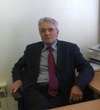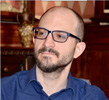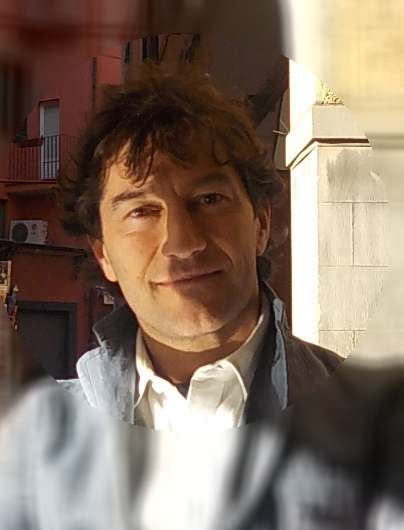Studying at the University of Verona
Here you can find information on the organisational aspects of the Programme, lecture timetables, learning activities and useful contact details for your time at the University, from enrolment to graduation.
Academic calendar
The academic calendar shows the deadlines and scheduled events that are relevant to students, teaching and technical-administrative staff of the University. Public holidays and University closures are also indicated. The academic year normally begins on 1 October each year and ends on 30 September of the following year.
Course calendar
The Academic Calendar sets out the degree programme lecture and exam timetables, as well as the relevant university closure dates..
| Period | From | To |
|---|---|---|
| Sem. IA | Sep 25, 2017 | Nov 11, 2017 |
| Sem. IB | Nov 13, 2017 | Jan 20, 2018 |
| Sem. IIA | Feb 26, 2018 | Apr 21, 2018 |
| Sem. IIB | Apr 23, 2018 | Jun 9, 2018 |
| Session | From | To |
|---|---|---|
| Sessione Invernale | Jan 22, 2018 | Feb 24, 2018 |
| Sessione Estiva | Jun 11, 2018 | Jul 28, 2018 |
| Sessione Autunnale | Aug 27, 2018 | Sep 22, 2018 |
| Sessione Straordinaria | Jan 14, 2019 | Feb 16, 2019 |
| Session | From | To |
|---|---|---|
| Sessione Estiva | Jul 16, 2018 | Jul 21, 2018 |
| Sessione Autunnale | Nov 12, 2018 | Nov 17, 2018 |
| Sessione Primaverile | Apr 1, 2019 | Apr 6, 2019 |
| Period | From | To |
|---|---|---|
| All Saints Day | Nov 1, 2017 | Nov 1, 2017 |
| Immaculate Conception | Dec 8, 2017 | Dec 8, 2017 |
| Christmas break | Dec 22, 2017 | Jan 7, 2018 |
| Easter break | Mar 30, 2018 | Apr 3, 2018 |
| Liberation Day | Apr 25, 2018 | Apr 25, 2018 |
| Labour Day | May 1, 2018 | May 1, 2018 |
| Patron Saint Day | May 21, 2018 | May 21, 2018 |
| Republic Day | Jun 2, 2018 | Jun 2, 2018 |
| Summer break | Aug 13, 2018 | Aug 18, 2018 |
Exam calendar
Exam dates and rounds are managed by the relevant Humanistic Studies Teaching and Student Services Unit.
To view all the exam sessions available, please use the Exam dashboard on ESSE3.
If you forgot your login details or have problems logging in, please contact the relevant IT HelpDesk, or check the login details recovery web page.
Should you have any doubts or questions, please check the Enrollment FAQs
Academic staff
 cristina.bertazzoni@univr.it
cristina.bertazzoni@univr.it
 donato.desilvestri@univr.it
donato.desilvestri@univr.it

Longo Mario
 mario.longo@univr.it
mario.longo@univr.it
 045 8028393
045 8028393
 federico.melotto@univr.it; federicomelotto@hotmail.com
federico.melotto@univr.it; federicomelotto@hotmail.com

Migliorati Lorenzo
 lorenzo.migliorati@univr.it
lorenzo.migliorati@univr.it
 045802 8135
045802 8135
 andrea.nicolini.uni@gmail.com - andrea.nicolini@univr.it
andrea.nicolini.uni@gmail.com - andrea.nicolini@univr.it
 igor.pelgreffi@univr.it
igor.pelgreffi@univr.it
 stefania.pontrandolfo@univr.it
stefania.pontrandolfo@univr.it
 pieralberto.porcedducilione@univr.it; pierre_pordd@yahoo.it
pieralberto.porcedducilione@univr.it; pierre_pordd@yahoo.it
 045 8028732
045 8028732
Study Plan
The Study Plan includes all modules, teaching and learning activities that each student will need to undertake during their time at the University.
Please select your Study Plan based on your enrollment year.
1° Year
| Modules | Credits | TAF | SSD |
|---|
A course to be chosen among the following2° Year activated in the A.Y. 2018/2019
| Modules | Credits | TAF | SSD |
|---|
A course to be chosen among the followingA course to be chosen among the followingA course to be chosen among the following3° Year activated in the A.Y. 2019/2020
| Modules | Credits | TAF | SSD |
|---|
A course to be chosen among the followingA course to be chosen among the followingA course to be chosen among the following| Modules | Credits | TAF | SSD |
|---|
A course to be chosen among the following| Modules | Credits | TAF | SSD |
|---|
A course to be chosen among the followingA course to be chosen among the followingA course to be chosen among the following| Modules | Credits | TAF | SSD |
|---|
A course to be chosen among the followingA course to be chosen among the followingA course to be chosen among the following| Modules | Credits | TAF | SSD |
|---|
Legend | Type of training activity (TTA)
TAF (Type of Educational Activity) All courses and activities are classified into different types of educational activities, indicated by a letter.
Contemporary History (2017/2018)
Teaching code
4S00755
Teacher
Coordinator
Credits
6
Language
Italian
Scientific Disciplinary Sector (SSD)
M-STO/04 - CONTEMPORARY HISTORY
Period
Sem. IIB dal Apr 23, 2018 al Jun 9, 2018.
Learning outcomes
The educational objectives of teaching Contemporary History, in accordance with the more general objectives of the course of study in Educational Sciences, aim to give the students of both curricula the necessary skills for them to take on the different professional roles offered by the world of social services.
In particular, the course aims to achieve two macro-objectives:
1) to allow students to form their own basic “historical culture”;
2) to provide students with the indispensable cultural instruments to rationalize the sense of time and space, in order for them to critically examine historical interrelationships and to approach “their” contemporariness more consciously.
A basic yet solid knowledge of Contemporary History allows students to act with greater awareness and mastery; it mostly allows them to properly contextualize social and cultural problems, thanks to a greater understanding of the general geo-historical contexts. Furthermore, the study of Contemporary History increases the ability of students to place the educational issues within a broader historical-cultural framework, find solutions and argue reasoning.
At the end of the course, students have to prove that they have gotten the basic elements of knowledge of Contemporary History; furthermore, they are supposed to argue critical reflections about the main thematic issues of contemporary age quite individually and to be sufficiently able to explain them clearly.
Program
The course aims to outline a general overview of the main events of the political and social history of the 20th and 21st centuries, so that students can be provided with the cultural instruments necessary to properly understand the thematic issues of the Italian and world contemporary age.
In particular, the following topics will be covered:
1) The Belle Epoque and the origins of contemporary Europe.
2) The origins of contemporary Italy: the Giolittian era and its contradictions, seized and failed opportunities.
3) The Apocalypse of industrial and war modernity: questions and issues related to the First World War.
4) An impossible transition: political violence, apocalypse of democracy and fascism.
5) The age of totalitarianisms (with a particular attention to educational policies).
6) The world after the catastrophe. The hard journey towards rebirth (1945-1950).
7) The golden age in the Western world, the “birth” of the Third World (1945-1975) and the great transformations from the sixties onwards.
8) To observe and figure out the world we live in: the seventies, eighties and nineties.
9) The contemporary world problems: the globalization as a failed opportunity, the new migrations, the return of nationalisms, the rise of populisms and the crisis of democracy.
Being the course an introductory one, attended by a large number of students, the lessons will be mostly one-sided, that is the teacher will lecture on the topics most of the time, without debates or discussions. Nevertheless, there will also be thematic insights into some particular types of documents (specific and significant archive papers, historical documentaries, songs etc.). At the end of the course, some educational trips will be organized to the places where historians carry out their own researches. In particular, the following places will be visited: the State Archive of Verona, the Municipal Library of Verona, the Capitular Library of Verona.
These visits have two main objectives:
1) to allow students to understand the process through which the historiographical “tale” is being created, which is always connected to the study and analysis of archive papers and the bibliographic research;
2) to allow students to better figure out the complex process for elaborating any scientific study and, therefore, to become more aware, in view of the thesis drafting, of the importance of the sources research.
Each group of students taking part in the visit cannot be formed by more than twenty people. Each group will be accompanied by the teacher and will make use of a guide within the visited place. The visits will be organized at the end of the course.
A) Reference texts (for attending and not attending students):
G. Sabbatucci, V. Vidotto, Storia Contemporanea. L'Ottocento, Laterza, Roma-Bari 2008 (ONLY chapters "L'Europa tra i due secoli", and "L'Italia giolittiana").
One of the following texts to be selected:
G. Sabbatucci, V. Vidotto, Storia Contemporanea. L'Ottocento, Laterza, Roma-Bari 2007;
A. M. Banti, L'età contemporanea. Dalla Grande Guerra a oggi. Laterza, Roma-Bari 2009.
B) One of the following books to be selected:
1) M. Colucci, M. Sanfilippo, Le migrazioni. Un'introduzione storica, Carocci, Roma 2015;
2) M. Campanini, Storia del Medio Oriente contemporaneo, il Mulino, Bologna 2017;
3) D. Tosini, Terrorismo e antiterrorismo nel XXI secolo, Laterza, Roma-Bari 2007;
4) A. Molinari, Una patria per le donne. La mobilitazione femminile nella Grande Guerra, il Mulino, Bologna 2014.
C) Gli studenti che necessitano di 9 crediti formativi ai testi già indicati devono aggiungere:
F. Barbagallo, L'Italia repubblicana. Dallo sviluppo alle riforme mancate (1945-2008), Carocci, Roma 2012.
Examination Methods
The final examination is written.
Objectives: to test the proper knowledge of Contemporary History and the ability to argue a critical reasoning about the main thematic issues.
Contents: the open questions regard the whole chronological period covered during the course (the twentieth century and the early years of the twenty-first century).
Mode: the exam is made of four open-and-limited-space-answer questions (15/20 lines). The first three questions are meant to test the knowledge of the general and handbook part, whereas the fourth question regards the specific book chosen by each student according to their own interests.
Marks: each question is given a mark, 7 points for the three questions regarding the Contemporary History handbook, 9 points for the question regarding the further specific book. The arithmetic sum of the marks for each question determines the final result.
The non-attending students are not going to sit a different examination.
Type D and Type F activities
Modules not yet included
Career prospects
Module/Programme news
News for students
There you will find information, resources and services useful during your time at the University (Student’s exam record, your study plan on ESSE3, Distance Learning courses, university email account, office forms, administrative procedures, etc.). You can log into MyUnivr with your GIA login details: only in this way will you be able to receive notification of all the notices from your teachers and your secretariat via email and soon also via the Univr app.
Graduation
Documents
| Title | Info File |
|---|---|
|
|
pdf, it, 99 KB, 13/10/23 |
|
|
pdf, it, 101 KB, 10/04/24 |
List of theses and work experience proposals
| theses proposals | Research area |
|---|---|
| Ambienti e contesti di lavoro con minori | Various topics |
| Analisi dei personal network di sostegno | Various topics |
| comunicazioni relative alla tesi | Various topics |
| Il teatro come contesto educativo | Various topics |
| I processi di globalizzazione culturale nella società contemporanea | Various topics |
| La social network analysis applicata allo studio dei contesti educativi | Various topics |
| L'educatore ed i progetti europei | Various topics |
| L'impegno associativo in ambito educativo | Various topics |
| Politiche sociali e contesti educativi | Various topics |
| Progetti di collaborazione con le istituzioni scolastiche | Various topics |
| PROPOSTE TESI AMBITO GEOGRAFICO | Various topics |
| Scuola e capitale sociale | Various topics |
Linguistic training CLA
Gestione carriere
Student mentoring
Practical information for students
Documents
| Title | Info File |
|---|---|
|
|
pdf, it, 325 KB, 02/05/23 |
|
|
pdf, it, 212 KB, 02/05/23 |
|
|
pdf, it, 131 KB, 02/05/23 |
Stage e Tirocini
Le ulteriori attività formative (crediti F) sono interamente coperte dall’attività di tirocinio “indiretto” (1 cfu) da svolgersi nel secondo anno e di tirocinio “diretto” (14 cfu) da svolgersi presso enti convenzionati per un numero complessivo di 15 cfu (375 ore). Chi è iscritta/o al curriculum servizi per l’infanzia è tenuta/o a svolgere il tirocinio presso nidi e servizi per la prima infanzia per almeno il 50% delle ore.
Il tirocinio professionalizzante (375 ore, pari a 15 cfu), è obbligatorio sia nella sua forma diretta che indiretta.
Il tirocinio indiretto, della durata di 25 ore a frequenza obbligatoria al 75%, si svolge in Università per 20 ore e in forma di lavoro individuale per 5 ore e consiste in un accompagnamento iniziale delle/degli studenti da parte dei tutor attraverso un percorso formativo dotandoli di conoscenze e strumenti adeguati a osservare, comprendere e rielaborare criticamente l’esperienza di tirocinio nei servizi educativi e ad affrontare il tirocinio negli enti con metodo e consapevolezza. Il percorso, da attuare in gruppi da 20-25 persone sotto la supervisione di un tutor, risponde alle esigenze costantemente espresse sia dalle/dagli studenti stessi sia dalle parti sociali che dai referenti degli enti convenzionati.
Il tirocinio diretto si propone di raggiungere i seguenti obiettivi:
- fare esperienza diretta di attività professionali, che richiedono un livello di preparazione al lavoro educativo;
- approfondire in particolare il rapporto tra preparazione teorica, acquisita mediante lo studio, ed esperienza pratica, tra mondo del sapere e della cultura e mondo del lavoro e delle professioni;
Al termine del tirocinio diretto lo studente deve presentare una relazione scritta, nella modalità concordata con il tutor accademico.
Nuove Linee Guida per il tirocinio di Scienze dell'educazione.
- Tutte le informazioni in merito agli stage per futuri studenti sono disponibili alla pagina Stage e tirocini.
- Tutte le informazioni in merito agli stage per studenti iscritti sono pubblicate in MyUnivr - come fare per - stage e tirocini.
- Tutte le informazioni in merito agli stage per le aziende sono disponili alla pagina Stage e tirocini per azienze.
Documents
| Title | Info File |
|---|---|
|
|
pdf, it, 302 KB, 16/07/21 |
























